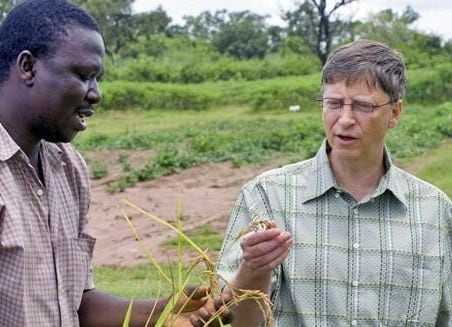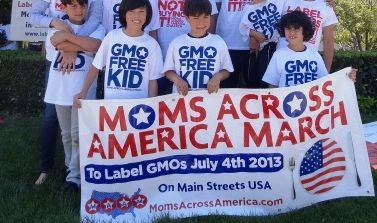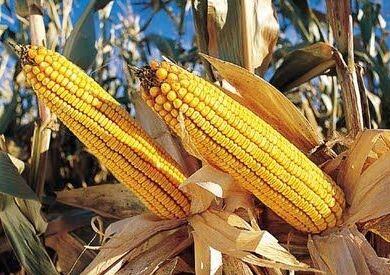Dr Beachy - speaking to us as Moms across America (a ‘Coalition of Unstoppable American Moms’) organized marches across the US alerting people to the “rising health risks associated with GMOs in the food we feed our children” - admits he’s baffled by such sentiments, given that “I want what they want: safe food and sustainable agriculture”.
It's more sustainable and in the long run it will leave us with a cleaner environment
He adds: “Like the Moms, I too want to know where my food comes from. The reason I got into biotech in the early 1980s was because I wanted to reduce the use of chemical pesticides in food production.
“I wanted to see if we could develop disease resistance by using genetics rather than agrichemicals. It's more sustainable and in the long run it will leave us with a cleaner environment.”
Organic farmers also want to reduce the use of chemical pesticides, he says. “But who is a legitimate arbiter of what is sustainable in agriculture? Who defines the best practices that farmers should follow to attain an agriculture that is sustainable for the environment as well as the economic success of the farmer?
“There have been hundreds of academic studies and an enormous amount of publicly funded research*, and there is no evidence that GM foods have caused a single headache stomach ache, or food allergy. Yet given the scientific facts about food safety of GM foods, there still seems to be a question about who has the truth in agriculture.
"How can the dialogue change? It’s something I’ve been puzzling over for more than 25 years.”
People now have the sense that they can’t trust anyone

He added: “It makes a big difference when people from outside the industry like Bill Gates come out in favor of using advanced technologies including biotech crops, but the seed and food industry itself have handled the whole debate pretty atrociously.
“The problem is that people now have the sense that they can’t trust anyone, food manufacturers, academics involved in biotech, seed companies, farmers, because they perceive that most or all have a financial interest in one way or another.”
Who is a legitimate arbiter of what is sustainable in agriculture?
Meanwhile, the fact that a handful of companies control 80% of the seeds, and most of them are owned by big chemical companies (BASF, Syngenta, DuPont, Bayer, Dow and Monsanto) only reinforces the idea that the only people that benefit from biotechnology are big businesses, he says.
But the problem is that the regulatory environment is so challenging, time consuming and expensive, that only big business has the resources to navigate it, he says.
“The regulatory environment excludes university scientists and small local seed companies from participating in the way that they used to. And new players can only navigate the regulatory system if they have big backers with very deep pockets.”
The key is that we must take better care of our soil
Asked why more environmental NGOs had not embraced biotech crops, he said: “Some have, some haven’t. It may be a membership, a sponsorship, issue. These organizations attract many individuals and wealthy donors - the Whole Foods crowd - that are anti-GM, anti-big business and big agriculture, or are pro organic.
"And neither the organic producers of those that sell organic foods want to lose that support.”
But he added: “We will only be successful if there is an acceptance and integration of all kinds of different agricultural practices. For example, some people think that for agriculture to be sustainable it has to be small. It can’t be small and feed 10 billion people, the projected world population by 2050.
“The key is that we must take better care of our soil.
"If we use no-till agriculture, better control crop rotations and manage fertilizer use, and reduce the losses caused from erosion, agriculture production will be improved. Some GM crops drive increased use of no-till agriculture, thereby reducing the use of farm machinery, saving fuel and power, and it reducing greenhouse gas emissions.”
GMO labeling

So what does he make of the current debate about GMO labeling?
“If the industry had labeled foods [that were produced from GM crops] from the get-go, we probably wouldn’t be having this conversation now”, says Dr Beachy.
“But in the mid-1990s the FDA said that they should not be labeled, and to do so would have been inconsistent with statues holding that because GM foods are not materially different in food safety or nutrition from non-GM foods they need not be labeled.
"However, one wonders if that was the best decision given where we are today.
“The problem is, if you label now, how do you do it in such a way that it is informative, meaningful, as the technology now has such a stigma attached?”
Critics are right about overuse and misuse of GM technology
But not everything is hunky dory when it comes to GM crops, he acknowledges, a problem highlighted in the National Research Council’s 2010 report: Impact of Genetically Engineered Crops on Farm Sustainability in the United States.
This concluded that while many farmers growing GE crops had seen substantial economic and environmental benefits (lower production costs, fewer pest problems, reduced pesticide use, better yields) the issue of weeds developing resistance to glyphosate was a growing problem.
“The problems are associated with the overuse and misuse of technology and as a consequence farmers are having to use other, less 'friendly' chemicals to deal with the resistant weeds, which is a challenge; it’s very difficult to find herbicides that are as safe as RoundUp", he says.
“But the same problems arise in conventional agriculture as well; farmers need to be responsible, rotate crops and agrichemicals. You also have to recognize that agriculture per se is a complex biological system and there are no magic bullets that have an unending benefits”
As for crops which are genetically changed so as to contain their own insecticidal proteins because they contain genes from the soil bacterium Bacillus thuringiensis (Bt) - different Bt genes produce proteins that target different pests - he says: “One problem has been that farmers didn’t always follow instructions to build refuges around the crops, so we now have insects that can overcome at least one of the proteins.
“With hindsight, we should have introduced crops with two or three proteins with different modes of action from the start, which is what is happening now, but in part the regulatory system was to blame. The refuges were recommended but weren’t enforced."
Mother Nature is not a benevolent force
One reason why GM crops seem so scary to people is - in part - because the food industry continues to peddle the myth that its mass-produced wares have magically made their way from field to fork with almost no human or mechanical intervention, he says.
This - coupled with a general chemophobia also encouraged by food marketers - has fostered an equally bizarre notion that we just need to return to a time when we were all lived in perfect harmony with ‘nature’ - before the modern industrialized food system ruined everything - he adds.
And in reality, such a time never existed: “Look at the disease rates and life expectancy 300 years ago before the advent of modern agriculture, food preservation, and food abundance. Our diets are far more varied now.”
As for living in harmony with nature, when have we ever managed that, he asks? “Mother Nature is not a benevolent force.”
But more importantly, what anti-GMO campaigners do not appear to grasp is that conventional agricultural techniques are not ‘natural’, or automatically better for the environment than GM crops, he says. We've been meddling with Mother Nature for years.
“What plant breeders have always been looking for is genetic diversity with which to develop new varieties that farmers and consumers will purchase. And if they can’t find it, they create it by using x-rays to induce mutations in the DNA of the crop. They then select varieties that have advantage over parent plant."

(And there is nothing natural, balanced or harmonious about that.)
Rich guy problem?
There are legitimate concerns about glyphosate -resistant weeds, resistant pests, poor enforcement of refuge areas, and the regulatory process governing GM technology, he accepts. But as for food safety concerns, “some of the statements you see from anti-GMO campaigners, they just have no basis in fact, it’s remarkable, they are just flat out lies.”
It’s also something of a rich guy problem, he says.
“This is a reflection of the arrogance of plenty, the luxury of choice.”
The CEO of the Global Institute for Food Security in Saskatchewan, Canada, Dr Roger Beachy led the Center for Plant Science and Biotechnology at Washington University in St. Louis in the 1980s and headed the Division of Plant Biology at The Scripps Research Institute in La Jolla in the 1990s.
He was the founding president of the Donald Danforth Plant Science Center, a not-for-profit research institute in St. Louis created in 1999, and was the first director of the National Institute of Food and Agriculture in October 2009 serving through May 2011. He also served as chief scientist of the USDA from January – October 2010.
* In a major report on ag biotech (click here, p18) in 2010, the European Commission noted: “The main conclusion to be drawn from the efforts of more than 130 research projects, covering a period of more than 25 years of research and involving more than 500 independent research groups, is that biotechnology, and in particular GMOs, are not per se more risky than conventional plant breeding technologies.”
Two years later, the American Association for the Advancement of Science (click here) concluded that “the science is quite clear: crop improvement by the modern molecular techniques of biotechnology is safe”.
The same year, the American Medical Association (which has called for mandatory pre-market safety testing of GE foods) added (click here): “The FDA’s science-based labeling policies do not support special labeling without evidence of material differences between bio-engineered foods and their traditional counterparts. The Council supports this science-based approach.”
The WHO, the Royal Society in London, and the National Academy of Sciences (which points out that all foods, genetically engineered or otherwise, carry potentially hazardous substances or pathogenic microbes and must be assessed to ensure a reasonable degree of safety), all agree.
